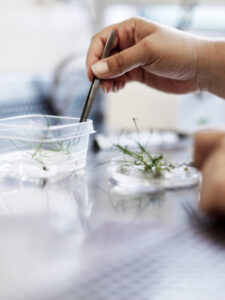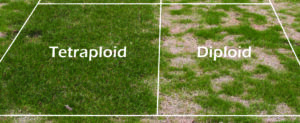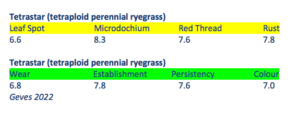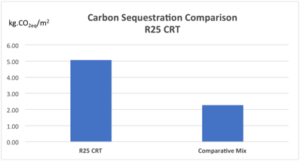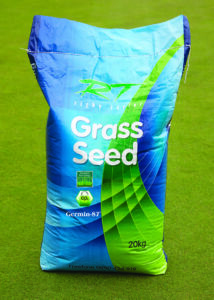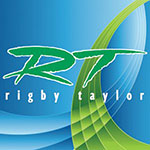Grass seed: ‘A stronger future’
Related Articles
The revocation and decline of available plant protection products determines grass seed selection must play an increasingly important role in integrated turf management programmes. Strengthening a plant’s tolerance to a range of turf diseases and environmental stresses has always been a focus for seed breeders and as new diseases emerge in the UK even greater emphasis must be given to developing cultivars with improved all round disease tolerance and environmental stress recovery.
Tetraploid perennial ryegrasses are highly stress tolerant plants with great persistency. With double the number of chromosomes compared to diploid ryes they are extremely robust with higher disease tolerance. Tetraploids have double the number of chromosomes compared to diploids ryegrasses meaning double the chlorophyll, helping to produce high energy, robust plants with a stronger, deeper, denser root mass for tensile strength, drought tolerance, and nutrient uptake.
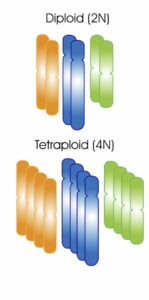
Each tetraploid cell has double the chromosomes of a diploid, meaning double the chlorophyll and the production of high energy, robust plants with a strong, deep and dense root mass for tensile strength
Cool performer
High vigour seed means fast germination, with growth even in colder conditions down to 40C, making them ideal for divotting and repairs from autumn through to spring as well as during the warmer months. Their proven success means Origin Amenity Solutions and seed-breeding partner Top Green continue to develop tetraploid mixes for use around the golf course, including 100 percent rye blends such as R25CRT and R140 for fast establishment and high wear tolerance, as well as rye / fescue mixes such as R6CRT and Super Root for fast recovery after drought.
Tetraploid cultivars have had their results published in the Geeves Turfgrass 2022 list where greater disease tolerance was achieved against common UK turf diseases, together with excellent physiology scores.
Seed treatments
Tetraploid mixes are treated with Germin-8T, a liquid seed treatment that coats the seed surface and adds just two percent by weight so there is no requirement to increase sowing rates. Also, as a liquid treatment, there is no risk of broken particles or dust to block a seed drill. Germin-8T contains a penetrating surfactant, targeted nutrients, micronised mycorrhizae and Trichoderma, which are activated when the seed contacts moisture in the rootzone. The treatment stimulates faster germination and rapid cell division for earlier emergence, root mass development and higher seedling survival rates, plus longer-term plant health. Independent trials have shown up to 100 percent increase in germination has been achieved after just 10 days.
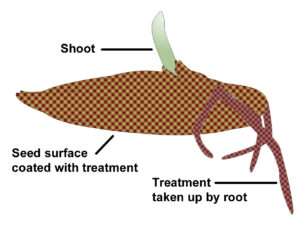
Germin-8T liquid seed coating provides the emerging roots at germination with immediate access to a cocktail of target nutrients, micronised mycorrhizae and Trichoderma
Carbon capture
As demonstrated by the presence of new diseases, changes in climatic conditions are dramatically challenging and shaping our environment. Golf clubs, like other businesses and organisations, produce greenhouse gases from the operational activities of the clubhouse and maintenance of the course. Such activities generate a carbon footprint, which contributes to global warming and climate change. It is within everyone’s duty of care to do the utmost to minimise or offset their carbon footprint. Extensive areas of grass and other vegetation on a golf course can ‘lock up’ carbon, meaning each club can potentially mitigate their carbon footprint.
A ‘Carbon4Grass’ study at Top Green breeding and research station commenced in 2005 using well-established grass plots. The continuing study not only reveals significant differences between grass species in their capacity to store and sequester carbon within the leaves, roots and soil profile when managed under the same environmental conditions, but also significant differences between cultivars within a species.
This knowledge has been used to create a range of Carbon4Grass (C4G) grass seed mixes, which combine increased levels of carbon sequestration with desirable amenity characteristics for golf courses.
Grass seed mixes R25CRT, R6CRT, (both with tetraploid rye) Low Maintenance and R41 all demonstrate the potential to sequester significantly more carbon in comparison with comparative mixes. Furthermore, Low Maintenance with the shortest re-growth cultivars of ultra-fine rye with fescues helps reduce mowing frequency for expansive areas such as fairways and mown roughs, meaning reduced carbon emissions accompanied by cost savings. Choosing C4G mixes helps mitigate management practices such a mowing which are necessary to maintain intensively managed turf.
A brochure on Carbon4grass seed mixtures and trial results is available in print from an area representative or by calling 0800 138 7222 or downloaded from www.originamenity.com (Rigby Taylor/Knowledge Hub)

